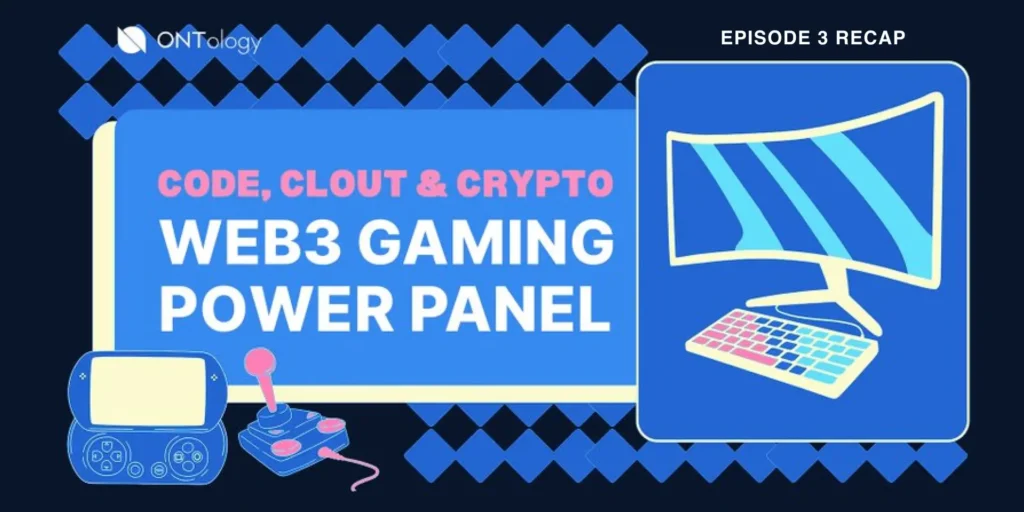Soulbound Tokens, Interoperability & Privacy in Onchain Games
Why it matters
As onchain games mature, builders are turning their attention to identity, reputation, and privacy. In Episode 3 of Code, Clout & Crypto, panelists from Holonym, MEW, Soulbound TV, and Ontology explored how soulbound tokens (SBTs), zero-knowledge proofs (ZKPs), and modular interoperability could redefine how players build persistent, meaningful identities across game worlds—without sacrificing privacy.
Read the full recap @ Crypto Sapiens Newsletter
🎙️ Featured Speakers
- Daniel – Holonym
- Catman – MEW
- Muaz – AlphablockZ & Tenset
- Marcello – Soulbound TV
- Humpty, Geoff & Polaris – Contributors at Ontology
Five core takeaways
1. SBTs are meaningful—but must stay flexible
Soulbound tokens help record untradeable achievements, affiliations, and milestones—like a Web3 version of Xbox trophies. But they need nuance: players should be able to evolve without being locked into outdated affiliations.
“Soulbound should empower reputation, not trap you in your past.” – Muaz
2. ZKPs bring privacy to portable identity
Zero-knowledge proofs allow players to prove skill, humanity, or access without revealing personal or historical data—perfect for pseudonymous play in onchain environments.
“You don’t need to leak your whole history to verify one thing.” – Daniel, Holonym
3. Interoperability should focus on proof, not items
Rather than pushing for fully portable assets, the panel leaned into portable proofs—like proof of play, contribution, or trust—allowing each game to interpret identity in its own way.
“We need to think less about fully portable items, and more about portable proof.” – Catman, MEW
4. Identity systems must balance permanence with privacy
With SBTs and ZKPs working together, players can build a reputation that travels, while still maintaining the ability to reset, grow, or protect sensitive aspects of their identity.
5. Composability is cultural as well as technical
True onchain identity will require collaboration across protocols, not just APIs. Reputation, trust, and playstyles need to be modular—so each game can read from shared identity layers without breaking its own narrative or balance.
Bigger pictur
As Web3 gaming evolves, so do its foundations. This episode highlights a future where players can carry identity and trust across ecosystems, but selectively. With soulbound tokens, zero-knowledge proofs, and composable profiles, onchain games can become persistent, interoperable, and player-first—without repeating Web2’s surveillance-heavy playbook.
What’s next in the series
Episode 4 closes the series with a dive into narrative systems, lore co-creation, and emergent storytelling in onchain games.
TL;DR
SBTs, ZKPs, and profile-level interoperability are creating a new model for Web3 games—where players earn recognition, not baggage, and carry their identity across ecosystems on their own terms.
📚 Related Reading
- Episode 2 Recap – The Role That Social Systems Play in Onchain Games
- Episode 1 Recap – How Digital Identity Is Shaping the Future of Onchain Games
- Full series @ Crypto Sapiens
👉 Subscribe to the Crypto Sapiens Newsletter to get future episodes, guest insights, and deeper dives on identity, privacy, and the future of play in Web3.

